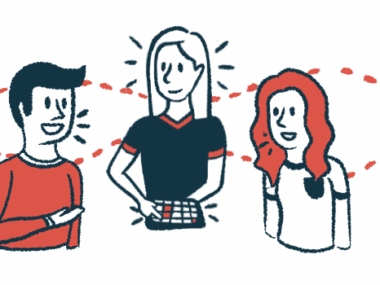If it’s June, it’s time for Alzheimer’s and Brain Awareness Month
Fundraisers, education events planned to support Alzheimer's community
Written by |

For many people, the month of June is for cookouts, picnics, and hanging out at the beach. For the Alzheimer’s disease community, though, it’s also Alzheimer’s and Brain Awareness Month — a time for educating others about the progressive neurodegenerative disorder and advocating for the approximately 55 million people globally who live with dementia.
From creating fundraisers for research to sharing stories on social media to advocating for better care, supporters each June mark Alzheimer’s and Brain Awareness Month with initiatives aimed at calling attention to the disease and the people it affects.
The annual campaign targets the general public — in addition to scientists, lawmakers, industry representatives, and health professionals specifically.
For its part, the Alzheimer’s Association is again asking supporters to participate in the Go Purple to End Alzheimer’s challenge. It involves donning something purple — the official color of the Alzheimer’s movement — to raise awareness as well as funds to help support patients and bring about better treatments, and ultimately a cure.
“You are not alone,” the association tells patients and caregivers on its webpage. “Whether you are living with dementia or caring for someone who is, information and resources are available.”
Goal of Alzheimer’s and Brain Awareness Month is education, advocacy
A number of celebrities, most of them sporting purple, are quoted on one of the organization’s event webpages, talking about the disorder or what the month means to them.
Actor Peter Gallagher, for example, states that “Alzheimer’s is a harrowing journey, but there are moments of grace and poetry where for a moment, the person you love makes themselves visible.” There’s also actor Crystal Kung Minkoff, who wrote: “Now that I have opened up publicly about my family’s battle with [this] disease, I want to encourage others to do the same.”
“When we talk about how we are facing this disease, it helps us feel less alone,” notes Jeff Henderson, an Olympic gold medalist in track and field.
Throughout the month, patients, caregivers, family members, and other advocates are also encouraged to share their stories on social media, using the hashtag #ENDALZ. The goal is to help raise awareness of Alzheimer’s, Also, until June 30, donations to the association will be triple-matched by the JTMF Foundation, up to $1 million.
When we talk about how we are facing this disease, it helps us feel less alone.
June 21 is what the organization calls “The Longest Day” because it falls on the summer solstice — the day annually with the most daylight. On that day, participants around the world are asked to “fight the darkness of Alzheimer’s” by engaging in a fundraising or virtual activity of their choosing.
Ideas put forth by the Alzheimer’s Assocation include creating a Facebook fundraiser, putting together a sporting event using household items, leading an online workout challenge, using personal skills to teach a virtual arts and crafts class, and presenting a favorite recipe online in exchange for a donation. Fundraisers can be based on participants’ favorite activities — and categories can include exercise, games or hobbies, sports, parties, and the arts.
The Alzheimer’s Association offers Longest Day resources such as posters and flyers, email templates, a mobile app, and a participation kit.
“The day with the most light is the day we fight,” is the organization’s theme for June 21.
Association lobbying to reverse decision blocking Medicare coverage
Further, the nonprofit is urging supporters to lobby for reversal of last April’s decision by the Centers for Medicare & Medicaid Services (CMS) to block Medicare coverage of federally approved therapies that target amyloid, a protein implicated in Alzheimer’s onset.
The association is ramping up efforts during June to make new treatments approved by the U.S. Food and Drug Administration for early-stage Alzheimer’s accessible to all who can benefit. Every day, more than 2,000 patients in the disease’s early stages transition to a more advanced state that renders them ineligible for treatment, according to the association.
Throughout the month, the Alzheimer’s Association will hold rallies in every state.
“We need to listen to people living with the disease. They deserve the right to access FDA-approved treatments now, while they still can, if they and their doctor decide it is right for them,” Robert Egge, Alzheimer’s Association’s chief public policy officer, said in an association press release.
“There’s a groundswell of support for CMS to reverse its decision — from bipartisan members of Congress to 26 attorneys general to physicians and scientists and patients and families. The CMS policy is wrong and must be reversed,” Egge added.
Lori Weiss, 65, of Oregon, who was diagnosed with mild cognitive impairment due to Alzheimer’s in 2020, notes that “people living with early-stage Alzheimer’s cannot afford to wait.”
“They deserve access to FDA-approved treatments now while they can still slow progression,” Weiss said, adding that making such therapies available will “allow us to live independently for a longer time.”
“It’s unfair and discriminatory how CMS is treating people living with Alzheimer’s,” Weiss added.






